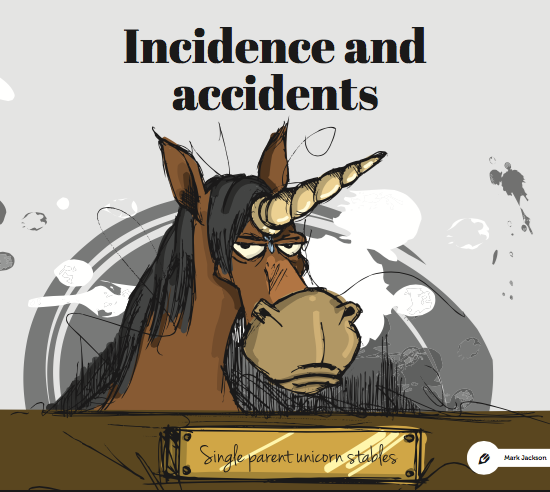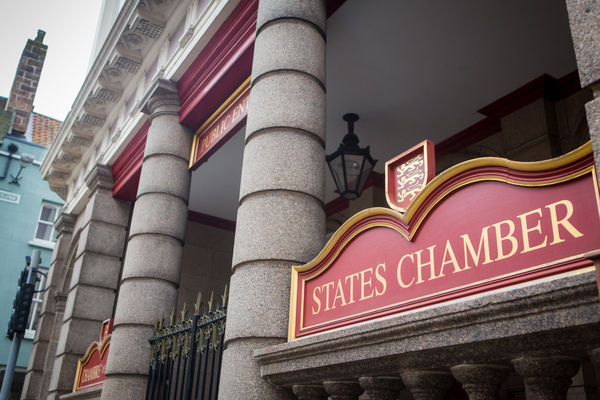

This month, Connect magazine's financial services columnist, The Fool, writes about the new Infrastructure Levy and its potential to push up property prices.
"You can probably file this alongside other ‘ursine arboreal defecation’ news, but it appears that - and I know this will come as a shock to some of our particularly sensitive readers - politicians might have a propensity to ‘lie’ occasionally.
"Well, as you are probably not saying, cut my legs off and call me shorty (other appropriate ‘down-home’ colloquial expressions of surprise are available). I know we’re just simple villagers, but are we really surprised any more when the ‘magic bean promises’ we get sold by those we place in positions of trust eventually turn not into gold, but crocks of something far less pleasant?
"In its latest example of focussing on the things that really improve the life of ordinary islanders, the States recently spent their valuable time debating, and deciding, to censure their ex-Home Affairs Minister after claims that he had lied to the Assembly. Now this throws up an interesting question. If the government are willing to punish members who lie to their colleagues, are they willing to exercise the same strictures when members are proved to have been less than opaque with the general public?
"Take, for example, a politician who promises to oppose any rise in university tuition fees, who gets elected partly as a result of this promise, and then does exactly the opposite of what he promised, by subsequently supporting a rise in fees. The public eventually punished Nick Clegg for his apparent dishonesty - but why should the government, or at least his own party, turn a blind to what was, admittedly with the benefit of hindsight, effectively a conveniently timed lie to the electors?
"We have impending elections in 2018, and will have both existing members seeking re-election, and newbies who believe that their personal manifestos will lead us to a better and brighter future. The delusions of the latter group we can’t really do much about, until their fantasies founder on the rocks of reality - but what of those already serving politicians, who are in the privileged position of being able to bring propositions that might show them in an undeservedly favourable light to the electorate? What happens if these policies offer outcomes that are at best illusory, or at worst, could actually be damaging? Should we cast the censure net a little wider if they fail to disclose these potentially problematic outcomes in favour of cheap electoral posturing?

Pictured: "If the States want to wield the righteous stick of censorial justice, they might start looking a little more closely at some of the things their members will be proposing over the next 8 months," says the Fool.
"On the face of it, the Environment Minister’s proposal, the Jersey Infrastructure Levy (which looks to charge private developers a fee on new building schemes that exceed 75 square meters, and to use the proceeds to fund playgrounds, cycle paths, tree planting and single parent unicorn stables) sounds like a winner. It’s a whole new source of income, and one-in-the-eye for today’s second vilest pantomime villains (Dante’s ninth circle being reserved solely for private sector landlords, rapaciously risking their own capital providing all that much needed accommodation), and Deputy Luce rides his white charger to certain re-election for services to lycra enthusiasts.
"Of course, to return to the previous feculant metaphor, the reality is that the outcome is likely to be somewhat less fragrant, because of what we in the trade refer to as tax incidence, or in simpler terms, ‘who ends up paying?’
"Here’s the science. Tax incidence is the analysis of the effect of a particular tax on the distribution of economic welfare. The incidence (i.e. who ends up paying) depends on the elasticity of the demand for the product or service concerned. If we introduce a tax on restauranteurs for every beef burger they sell, beef burgers are likely to go up in price to reflect the additional tax, and consumers have the choice of either paying the higher price, or choosing something else on the menu. The demand for beef burgers is, therefore, elastic. As a result, any additional tax raised is likely to be minimal, and the restauranteur is likely to see a rise in profits on the sale of other items to compensate for the decline in sale of beef burgers.
"If, however, the tax extends to every item on the menu, restauranteurs have the choice of absorbing the tax and seeing a decline in overall profits, or putting up the price of every item on the menu to compensate for the extra tax they are being charged. Overall demand becomes less elastic because of the absence of choice of alternative ‘non-taxed’ items, and the consumer pays the higher prices. Whilst the tax purports to being a charge on restauranteurs, the end user, the customer, ends up being the one paying.
"If we look at the proposed Jersey Infrastructure Levy in terms of elasticity, demand is inelastic because of the scarcity of alternatives. The consumer has only two choices.
1. Pay the higher price for the property incorporating the new levy (£85 per square meter on every property over 75 square meters, so on the average two-bedroom apartment, about £ 6,375. Oh, that’s in addition to existing stamp duties.)
2. Don’t buy the property, and continue to feather the nest of Dante’s favourite landlords.
"Now, I don’t pretend to be attuned to the voting intentions of the general public. But I’d be prepared to place a little wager on the likelihood of success of any potential candidate who was proposing to increase the price of houses to first time buyers, or support evil landlords, no matter how many species of indigenous macramé lichen they promised to save with the proceeds.
"If the States want to wield the righteous stick of censorial justice, they might start looking a little more closely at some of the things their members will be proposing over the next 8 months. If lying to their colleagues isn’t acceptable behaviour, why should it be ok to attempt to mislead the public?"
You can read more from the Fool in Connect magazine each month.
Comments
Comments on this story express the views of the commentator only, not Bailiwick Publishing. We are unable to guarantee the accuracy of any of those comments.